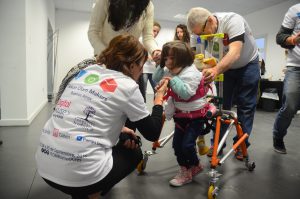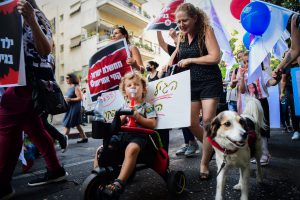Reduced Inequalities


Home » Reduced Inequalities » SDG 10- Probe & Improve – Part 1
SDG 10- Probe & Improve – Part 1
Read Part 2
We frequently reference Israel’s non-stop social equality discourse, which is often so critical it borders on self-flagellation. Government, civil society and the private sector – often collaborating – participate in this process of self-examination, but unfortunately it’s conducted mostly in Hebrew (that’s what we’re here for).
Many countries conduct their own process of self-review and improvement, of course. In Israel, not even July-August sun and surf along the Mediterranean could put on the brakes.
The area of reduced inequalities (SDG10), particularly in employment, stands out in the latest of series of relevant reports. For example, the annual release from the Economic Ministry’s Equal Employment Opportunities Commission (EEOC) covering 2020 emphasizes the following: two-thirds of complaints received came from women (about half of them concerning discrimination in the context of family growth and childcare: pregnancy – 34%, fertility treatment – 5%, parenting – 8%); around half concerned discrimination in working conditions; 2020 saw the highest increase since 2005 in the number of inquiries regarding age discrimination cases; the number of inquiries concerning discrimination against the background of community origin (FSU and Ethiopia) also continued to rise, as did those concerning place of residence.


The EEOC Commissioner emphasized: “Especially during a period of emergency and crisis, we expect employers to limit the damage caused to the rights of employees – particularly from underserved segments of the population – and act in a measured and balanced manner. The message to employers: it is absolutely illegitimate to illegally harm workers; their right to employment equality is firm and valid even in times of crisis.”
In another report looking into 2020: the Justice Ministry’s Commission for Equal Rights of Persons with Disabilities (CERPD) found that among 312 major public bodies, 61% fully implement the 5% standard of appropriate employment representation, 26% are in partial implementation (3.5%-5%), 12% are below standard (2%-3.5%) and 1% are not implementing the standard whatsoever. Those fully adhering include the Knesset (parliament), the Israel Police and the Islamic Waqf; the Bank of Israel, Securities Authority and Civil Aviation Authority are all below standard.
The CERPD’s Acting Commissioner noted that while numerous public bodies succeeded in maintaining the expected standard of appropriate employment representation of persons with disabilities during the extended crisis period, continued efforts are required to eliminate their discrimination and gaps between them and the rest of the population.
Not a pretty picture, true. Nevertheless: better to expose, admit and correct – than to pretend that no problem exists.
Related articles


SDG 10 – Tikkun Olam Makers: Reducing Limitations
Reduced Inequalities Tikkun Olam Makers (TOM) was founded in Israeli as an international not-for-profit movement, that utilizes modern design and digital manufacturing to address neglected


SDG 10-Workers’ Rights & Unions – A Natural in Israel
Reduced Inequalities After the Israel government recently adopted its first budget in three years, not hard to understand the collective sigh of relief. To some,


SDG 10 – What’s New with DEI?
Reduced Inequalities While many in Israel were busy with summer activities, the country’s social impact warriors kept doing what they do best: plowing ahead for


















